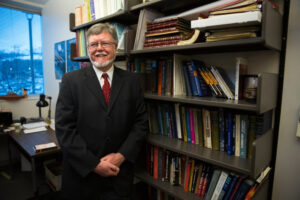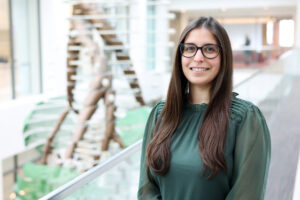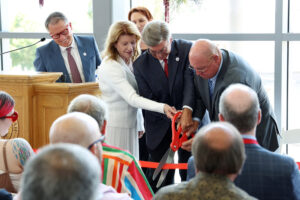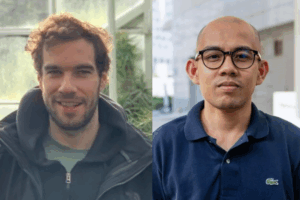Distinguished Educator Award

Claudia De Grandi
Claudia De Grandi awarded College of Science Distinguished Educator Award.
Claudia De Grandi, assistant professor (lecturer) of educational practice in the Department of Physics & Astronomy, has been recognized for her exceptional contributions to the educational mission of the College of Science by receiving the 2021-2022 College of Science Distinguished Educator Award.
Nominations for the award include faculty who have gone above and beyond to foster community, provide engaged learning opportunities, or otherwise substantially enrich learning experiences within the College of Science community at the university.
“I am excited and honored to receive this award! It’s a pleasure to work with faculty, students, and staff in the College in the pursuit of educational excellence.”
In supporting De Grandi’s nomination, Christoph Boehme, professor and chair of the department, said, “The award recognizes the excellent work that Claudia has done over the past years, not just as an outstanding course instructor, but also for course and curriculum development. We are so lucky to have her as a faculty member in the department.”
Some of the projects she has been actively involved with in the department include: designing and leading the teaching assistant orientation for incoming graduate students, reforming the undergraduate physics curriculum, and piloting a new peer-to-peer mentoring program (the PANDA Network led by Dr. Gail Zasowski).
Since fall 2020, Dr. De Grandi has served as the chair of the Physics and Astronomy Teaching Excellence Committee, the goal of which is to support all faculty and instructors in the department to design effective learning environments and foster student success. The ongoing work of this committee includes: creating a community in the department to discuss and share teaching practices and tools (especially during the beginning of Covid-19 and the adjustment to online teaching); providing instructors with the tools to seek feedback from students (e.g. via mid-semester anonymous surveys); and advising department leadership on the implementation of teaching innovation.
Since her arrival at the U in 2018, De Grandi has been teaching several large-enrollment introductory physics courses and labs geared to all STEM majors. De Grandi designs her courses with these goals in mind: fostering community and collaboration among students, creating a space for incremental learning, and providing resources and access.
Informed by her previous teaching experience at Yale University, De Grandi brought to the U a new course in the spring of 2020: the Being Human in STEM course (SCI 3900/HONOR 3990). The goal of this course is to create a space for dialogue between STEM students and STEM faculty to investigate together the theme of diversity and climate within STEM. As part of the course, students develop and implement their own projects with the goal of improving the experience of STEM students at the university. The course satisfies the University General Education Diversity requirement and also counts as an Honors College elective. De Grandi has co-taught this course for the past three years in collaboration with other faculty in the College of Science, College of Engineering, and College of Mines and Earth Sciences.
Here is what one student said about the course. “This class gave me the tools I needed to be more inclusive and bring more humanity into STEM and the world. It has really just opened the door for me to realize that I have so much more to learn and experience. I am humbled by what little I know and how much I have to learn; but this class has given me the tools to start asking why. [It has also helped me in] re-examining my perceptions and how the dominant culture influences the foundations of our societies. It is by asking these questions and coming to these realizations that will then allow me to understand how we and I begin to dismantle it. Thank you all for giving us these tools! — Sam Bagge (Geology) Being Human in STEM 2021
by Michele Swaner, first published @ physics.utah.edu




